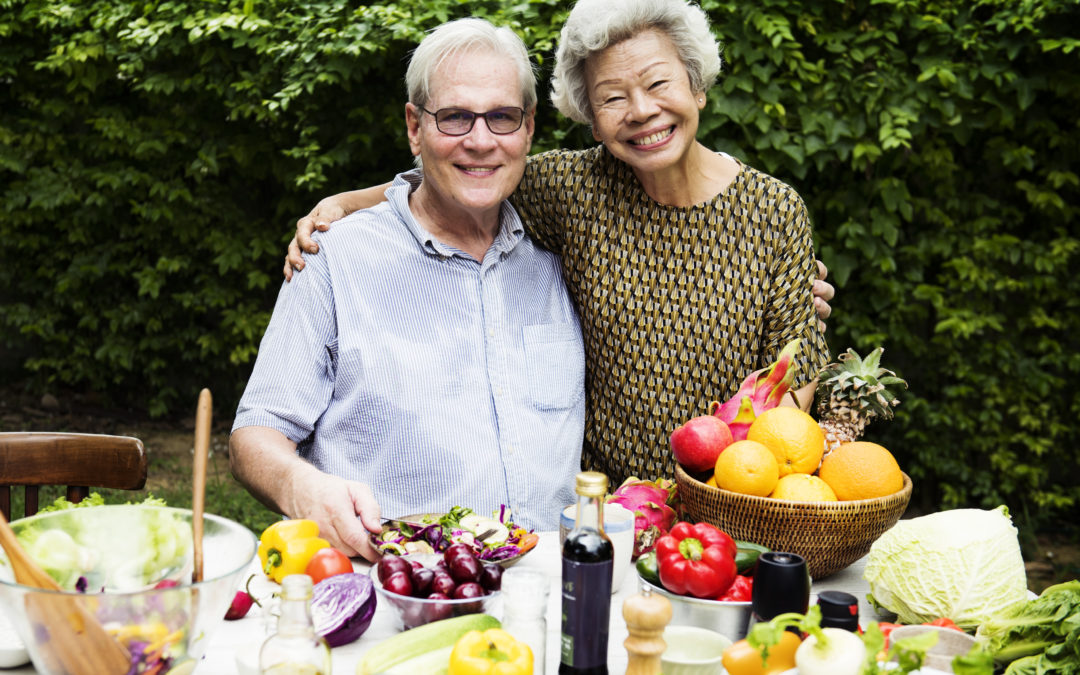The benefits of getting adequate nutrition are vast and varied; from boosting immunity and lowering risk of illnesses like heart disease and diabetes, to supporting healthy skin, teeth and muscles. Making sure our plates are filled with the right food is absolutely essential in maintaining good health, and as a person ages, getting the right nutrition for seniors becomes particularly important. Unfortunately, many seniors struggle to meet their nutritional needs, often facing issues like reduced appetite alongside practical barriers in sourcing, preparing and eating nourishing meals.
Why are Senior Diets Less Nutritionally Dense?
Unintentional weight loss is a common challenge for seniors. Rapid or unintended weight loss can be a consequence of reduced food consumption caused by a natural decline in appetite, or even lack of interest in food due to a loss of smell or taste. The quality and nutritional value of the food a senior eats may decrease, too. For example, seniors who struggle with mobility may find it much more difficult to get to the grocery store regularly to buy food, or struggle to cook healthy meals unassisted. As a result, they may turn to quick and easy convenience foods, which are often lacking.
Why is the Right Food for Seniors so Important?
Providing the right food for seniors is a vital aspect of senior care, as the consequences of inadequate nutrition can impact every facet of life. Seniors who are not getting the nutrients they need may experience accelerated cognitive decline, more severe mobility issues and an increased risk of hospitalization. Malnutrition can also lead to ailments like dry skin, mouth sores and joint pain, or psychological issues like irritability or depression. Carefully developed and monitored senior diets can go a long way in preventing many of these significant health complications and increasing quality of life for aging seniors.
What Should Senior Diets Include?
Whether you’re looking to improve your own diet, or are caring for an aging loved one, figuring out which foods are best can feel daunting. However, nourishing senior diets are not dissimilar to good diets for younger adults, and many basic healthy eating guidelines are still highly relevant in the context of nutrition for seniors.
For example:
- Include fruits and vegetables in meals where possible.
- Eat a varied diet from a range of food groups.
- Limit added sugar, saturated fat and sodium intake.
Senior diets can also benefit from:
- An increased prioritization of foods rich in calcium to maintain bone health. This can include dairy products like milk, cheese and yogurt, or non-dairy foods like fortified beverages, almonds, broccoli, or edamame beans.
- Including plenty of protein to prevent loss of muscle. Good protein sources include meats, poultry, tofu, eggs, peas, and beans.
- Greater flexibility. Many seniors experience unintended weight loss or poor appetite. In this case, sticking strictly to precise dietary requirements could be more detrimental than it is beneficial. For example, if your loved one has a poor appetite, but you know they have always loved a slice of cake or a chocolate chip cookie with their morning coffee, depriving them of this may cause more harm than good.
Of course, every senior is completely unique in their dietary needs – each with their own preferences, medical conditions, allergies, intolerances, or medications that may limit the foods they can eat. If you’re unsure about the best senior diet for yourself or a loved one, it’s always a good idea to speak to a doctor or dietician.
How can Senior Living Support Nutrition for Seniors?
Senior living communities in TN like New Hope, fully understand the importance of food for seniors, and are experienced in providing senior diets that prioritize enjoyment and nutritional value in equal measure. Fresh meals and snacks are prepared daily by highly trained chefs, and are dietician approved to carefully meet the unique nutritional needs of seniors. Similarly, meals are tailored to cater to individual preferences, making for a more personalized experience – just like home. Food intake is also carefully monitored, allowing for early intervention and effective prevention of malnutrition and unintentional weight loss.
What About Hydration?
Good hydration and nutrition for seniors go hand in hand, and are both instrumental for senior health. Aging seniors are typically at an increased risk of dehydration; this may be due to a lack of sensitivity to thirst cues or medical issues associated with aging, like decreased kidney function. Dehydration can lead to symptoms and ailments such as fatigue, dizziness, muscle cramps, low blood pressure, fainting, kidney stones or urinary tract infections (UTIs), all of which can have a cumulative and significant effect on quality of life for seniors. Senior living communities in Hendersonville, like New Hope, prioritize and monitor hydration daily, lowering a resident’s risk of experiencing these often-preventable symptoms.
Find out More
For those young and old, good nutrition is vital for both mental and physical health, and for seniors it is perhaps more important than ever before. If you would like to find out more about how New Hope Senior Living can provide tailored, nutritionally balanced meals for you or a loved one, give us a call to arrange a personalized tour today. And don’t forget to ask us about our seasonally inspired meals containing vegetables grown in our garden! Our dedicated in-house Chef will be happy to share with you our delicious farm to table recipes!

